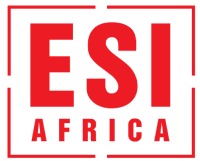Progress on water, sanitation slows, universal access drifts away
The promise of safe water and sanitation for every child is slipping further from reach
Achieving the 2030 targets for ending open defecation and universal access to basic Water, Sanitation and Hygiene (WASH) services will require acceleration, and universal coverage of safely managed services is increasingly out of reach.
This is indicated in a new report, Progress on Household Drinking Water and Sanitation 2000–2024: Special Focus on Inequalities, launched by the World Health Organisation (WHO) and the United Nations International Children’s Emergency Fund.
The report shows that between 2015 and 2024, global coverage of at least basic drinking water increased from 88% to 91%. Rural coverage rose from 79% to 85%, but urban coverage remained unchanged at 96%.
“By 2024, 89 countries had already achieved universal coverage (>99%) of at least basic drinking water (compared with 72 countries in 2015), and another 17 were on track for universal coverage by 2030.
“The 28 countries where more than one in four people still lacked basic services were concentrated in sub-Saharan Africa,” the organisations stated.
Millions still struggle for safe water in Sub-Saharan Africa
The report shows that in 2024, 287 million people used limited water services, and more than half lived in Sub-Saharan Africa.
It shows that between 2000 and 2024, the global population relying on surface water sources decreased from 247 million to 106 million.
“A third of this drop (49 million) took place in sub-Saharan Africa, where Nigeria and Ethiopia alone accounted for a drop of 36 million people and surface water use decreased from 18% to 6%,” it said.
The report warns that, at this current rate of progress, the world will only reach 77% coverage by 2030, leaving more than 2 billion people without safely managed services.
“Achieving universal coverage would require an eightfold increase in the current global rate of progress,” according to the report.
UNICEF Director of WASH Cecilia Scharp stresses that when children lack access to safe water, sanitation and hygiene, their health, education and futures are put at risk.
“These inequalities are especially stark for girls, who often bear the burden of water collection and face additional barriers during menstruation.
“At the current pace, the promise of safe water and sanitation for every child is slipping further from reach – reminding us that we must act faster and more boldly to reach those who need it most.”
Cover photo: borgogniels©123rf


